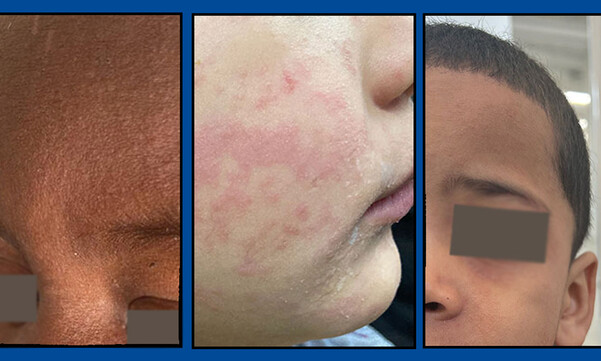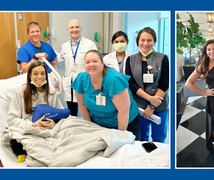For Cristina Leon, laser eye surgery has been beneficial both personally and professionally.
As a dental hygienist, Cristina León depends on good vision to do her job well. The 27-year-old Cary resident wore glasses to compensate for her nearsightedness, which was diagnosed seven years ago, and even embraced them as a fashion statement. “Initially I incorporated them into my look,” she says. “They were my thing.”
But over time, the disadvantages of wearing glasses began to add up. “At work we wear protective goggles when we are cleaning teeth,” she says. “I had to wear my glasses with panels on the sides, but spray and grainy particles would get on them. My glasses got completely scratched, like they were run over with sand paper.” Her glasses also repeatedly slid down her nose, and she would have to push them back up over the bridge with her gloved hand.
In the long-term I knew I’d be more comfortable without glasses.
León tried contact lenses to get around these problems, but they didn’t work for her. “I’m hypersensitive,” she says. “I always felt like I had a fingernail in my eye.” Plus, when she needed to wear sunglasses, she could never find her one pair of prescription shades.
After getting engaged last fall, León decided it was finally time to give up the need for glasses or contacts. She sought help from Duke corneal specialist, Dr. Preeya K. Gupta, MD, who performs vision procedures at the Duke Eye Center at Page Road. The center has a state-of-the-art refractive suite and offers free evaluations to determine who is a good candidate for LASIK.
Gupta performed several tests on León’s eyes and decided she fit the bill. Surgery was scheduled for January 2015.
Prior to LASIK, patients are given a sedative and numbing eyedrops, so they don’t experience pain. “We use a laser to make a protective flap in the cornea and then lift the flap and use an excimer laser to reshape the cornea, which corrects the vision,” says Gupta. “It’s like putting the patient’s corrective prescription right onto the eye.” The goal is to reduce a person’s need for glasses or contacts. (Patients who wear contact lenses discontinue them for about two weeks before getting LASIK.)
The procedure takes about ten minutes, and recovery is simple. “Usually by the next day, the patient is seeing very well,” says Gupta. Some patients experience temporary eye dryness, and there is a risk of glare. But, she says, “with our modern lasers, the risk is very small.”
No Complications; Seeing Better Than Ever
León’s experience was typical. She has had no complications and now sees better than ever without glasses, just in time for her upcoming wedding. “In the long-term I knew I’d be more comfortable without glasses,” she says. “But I also wanted to be glasses-free in my wedding portraits.”





